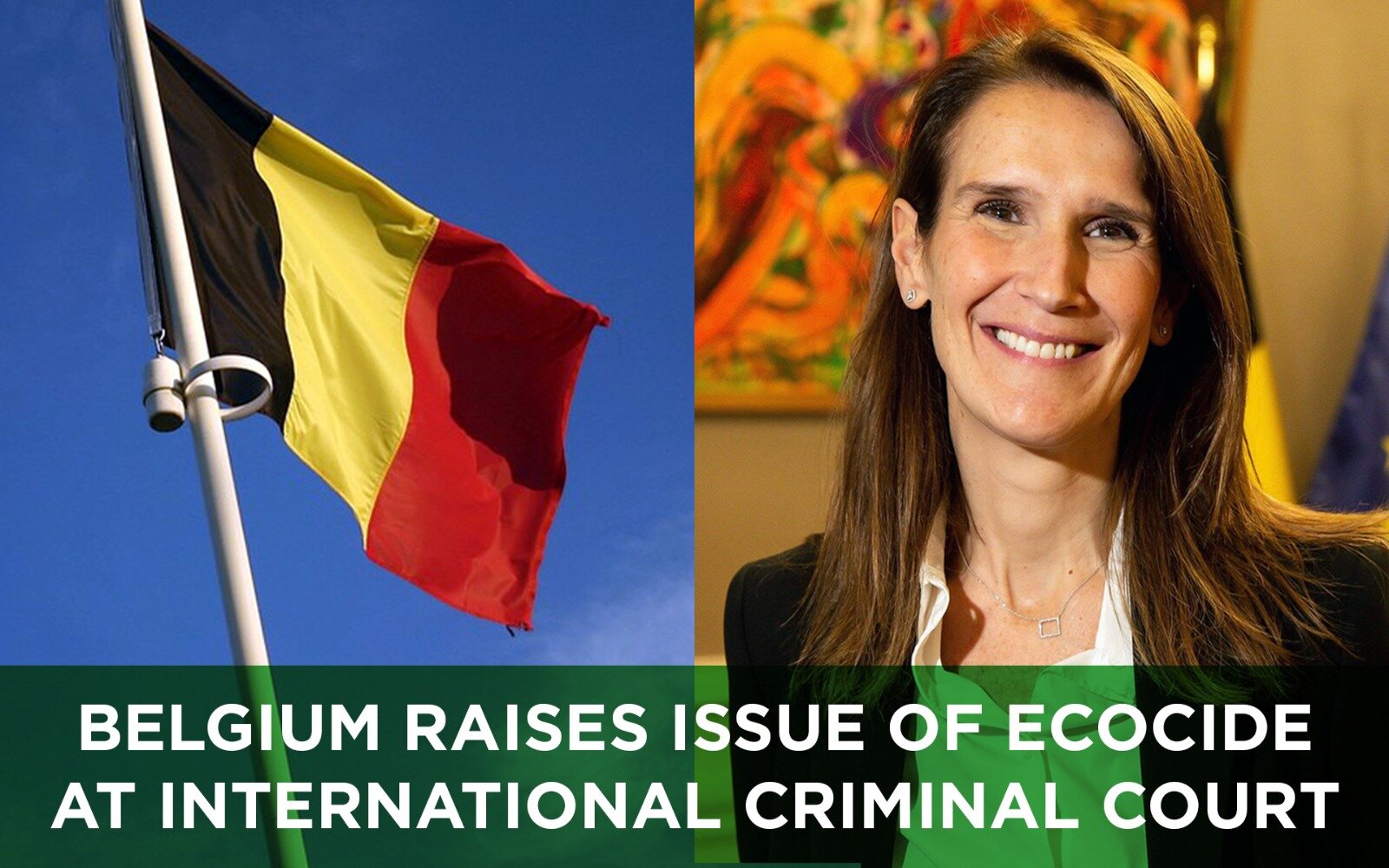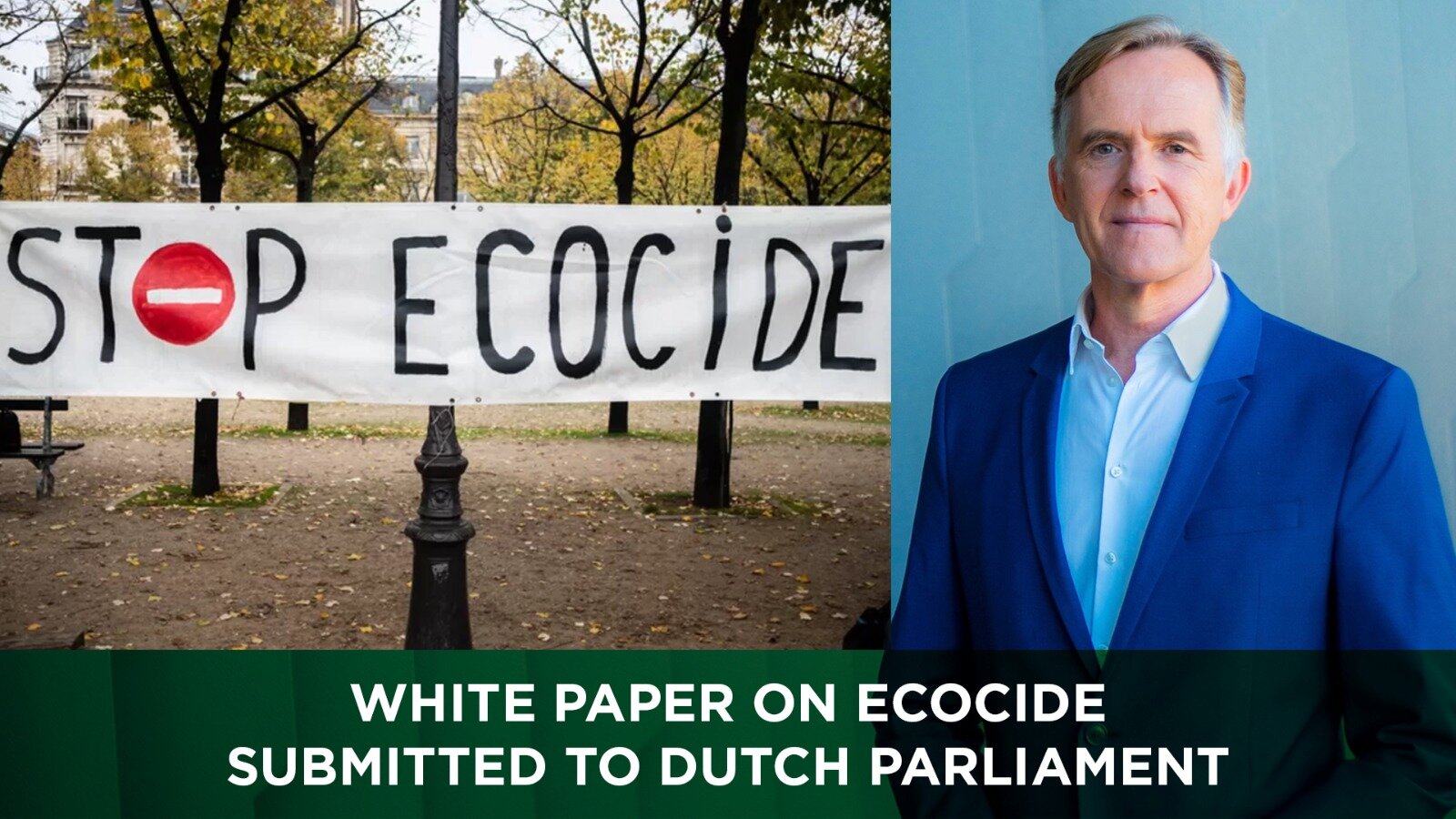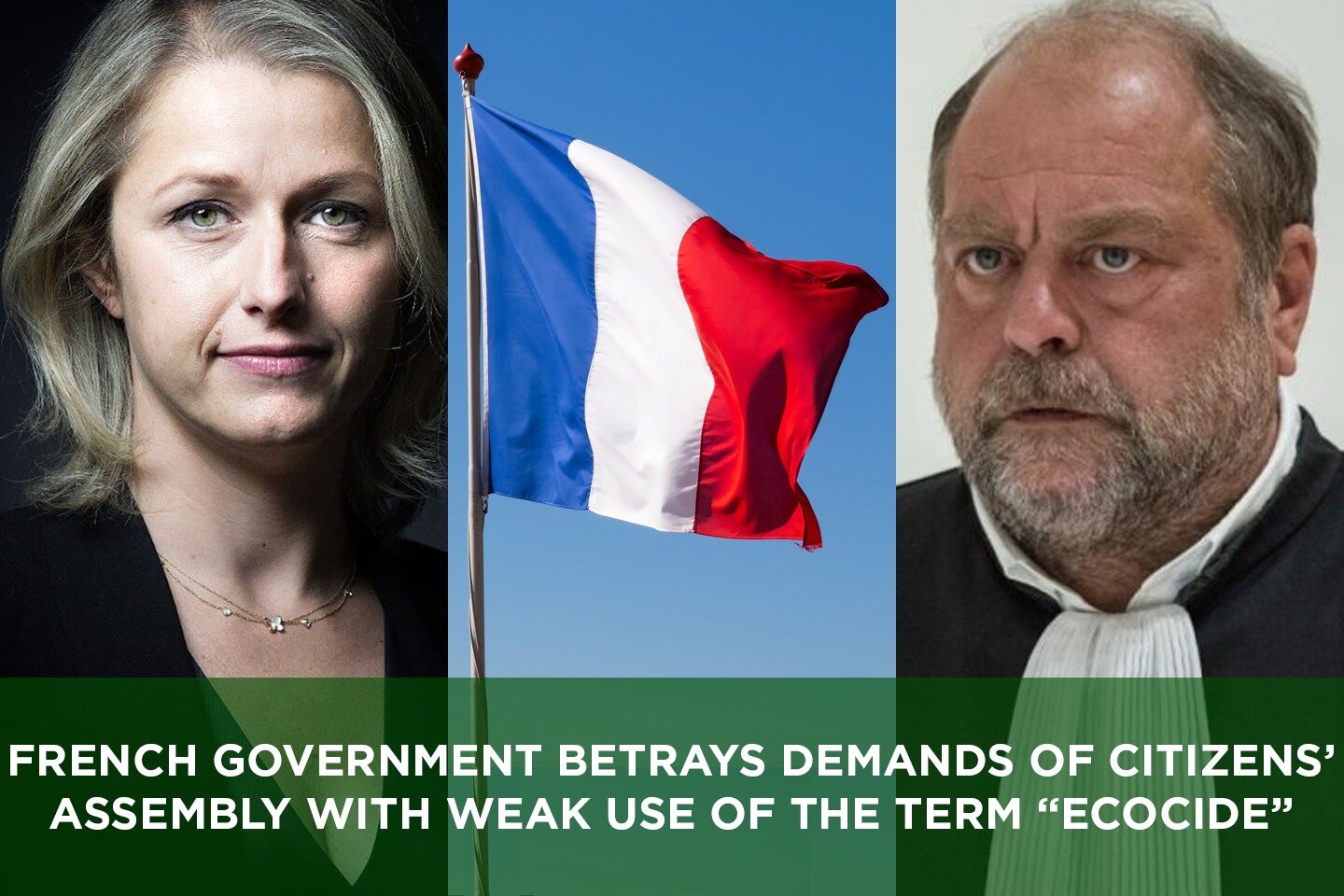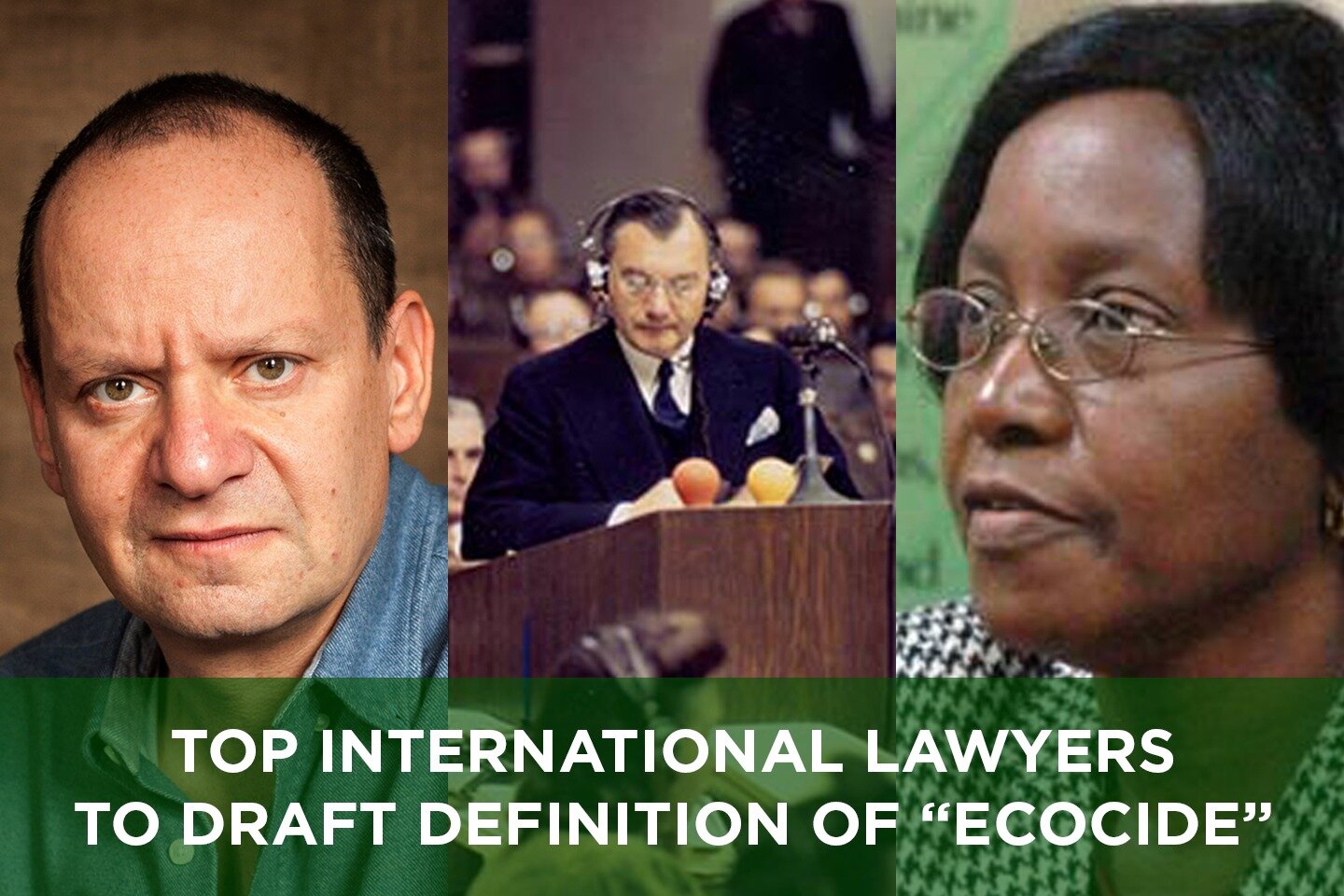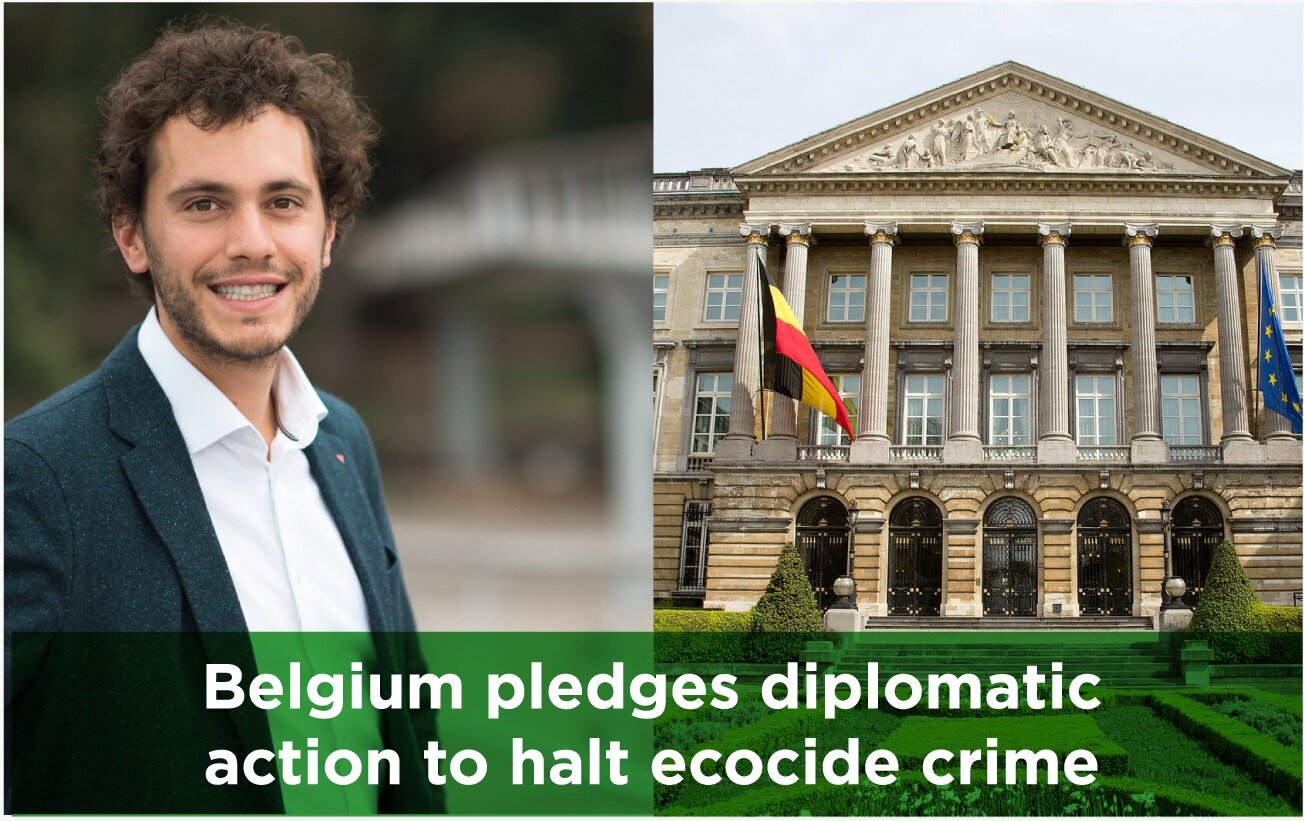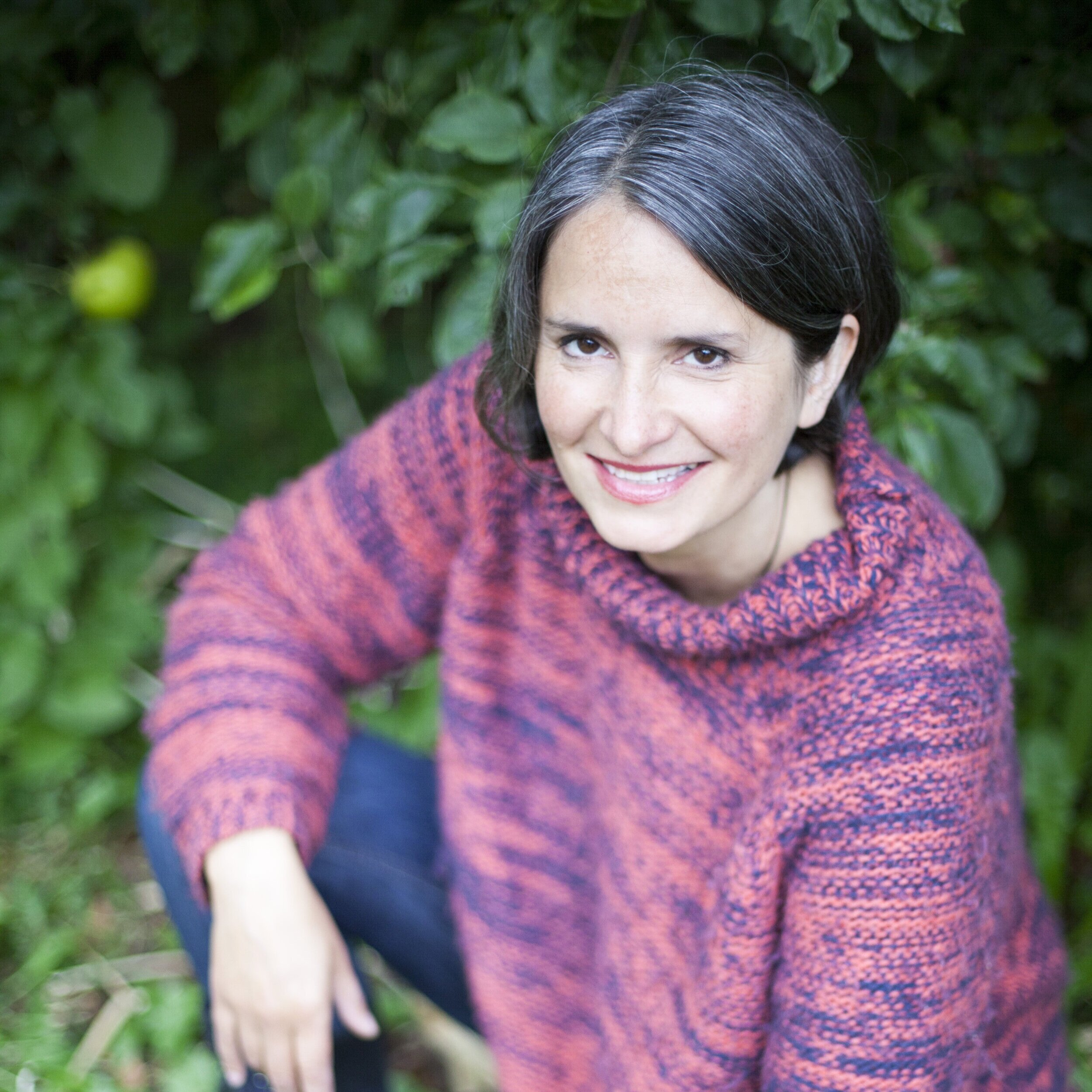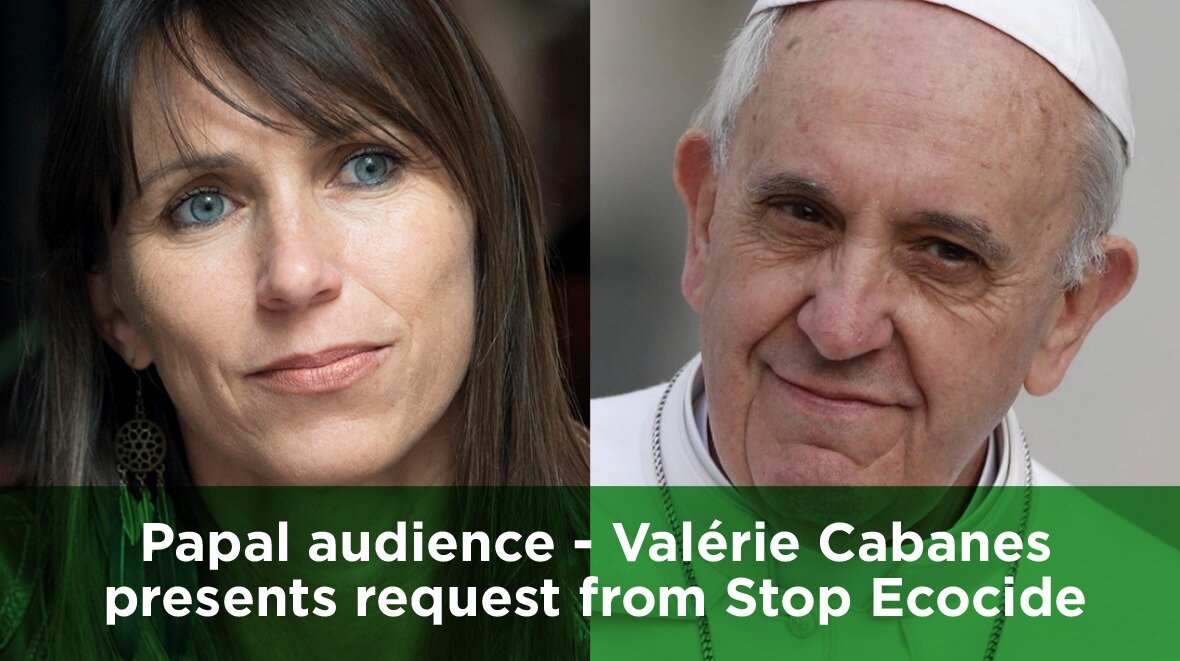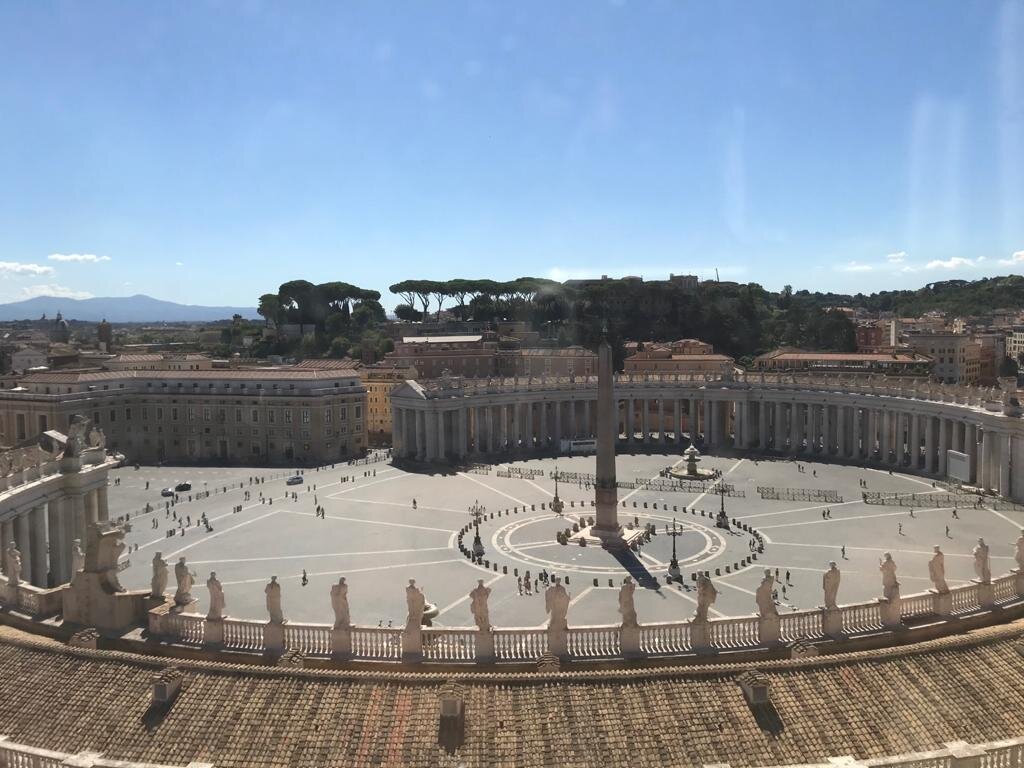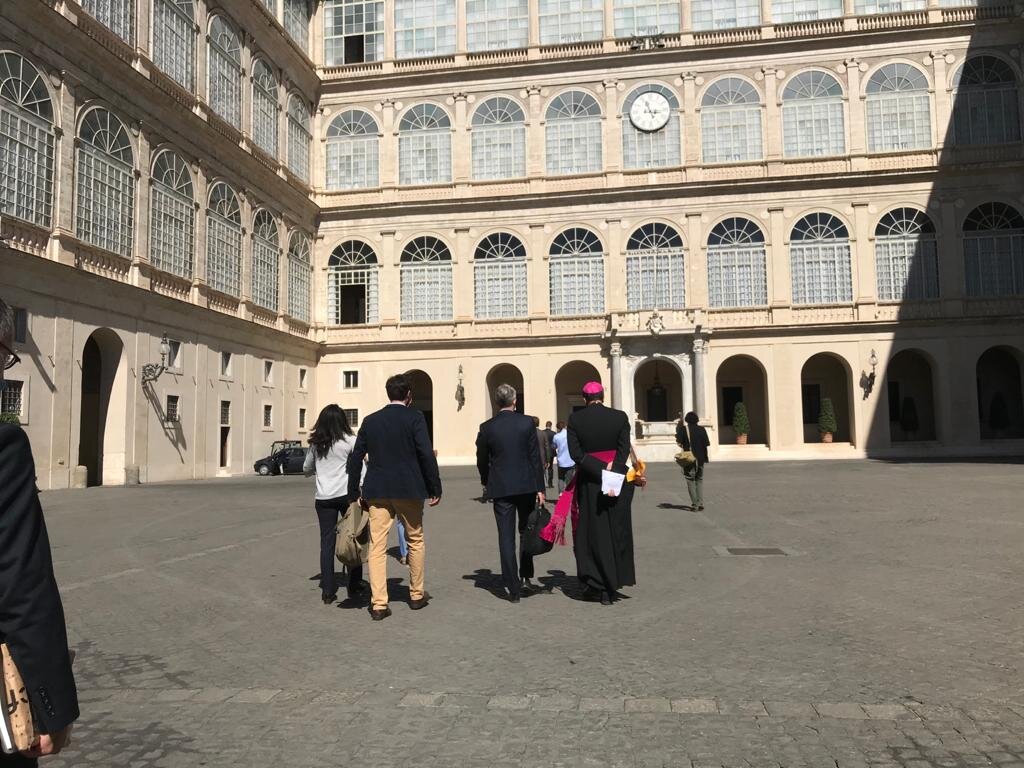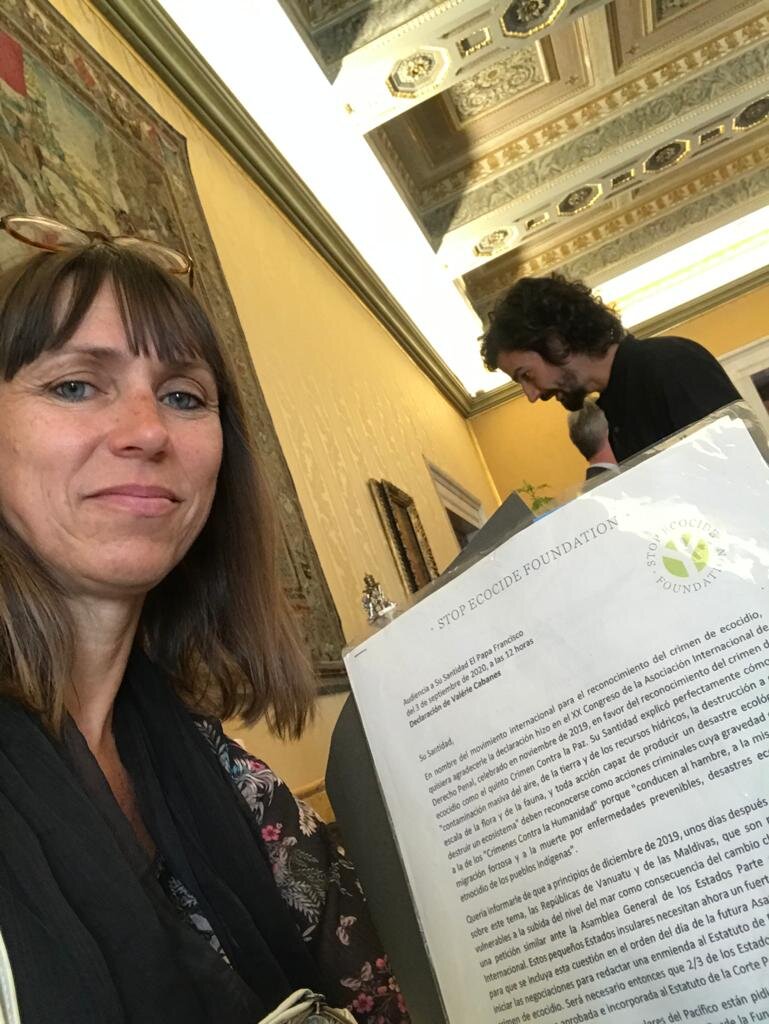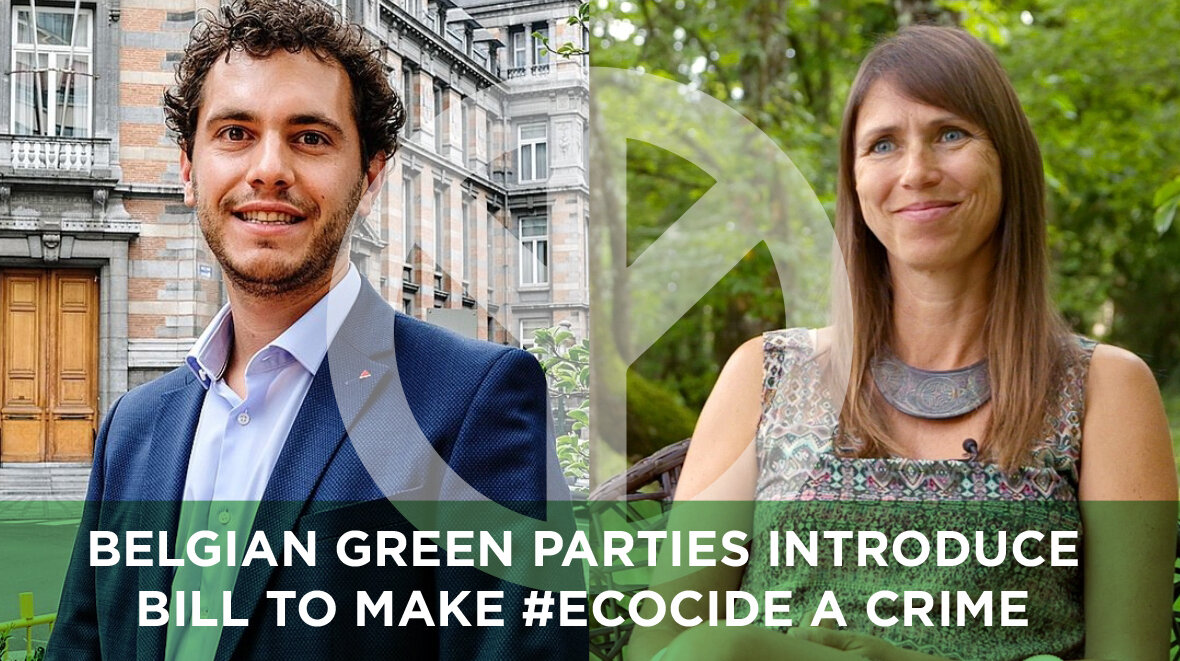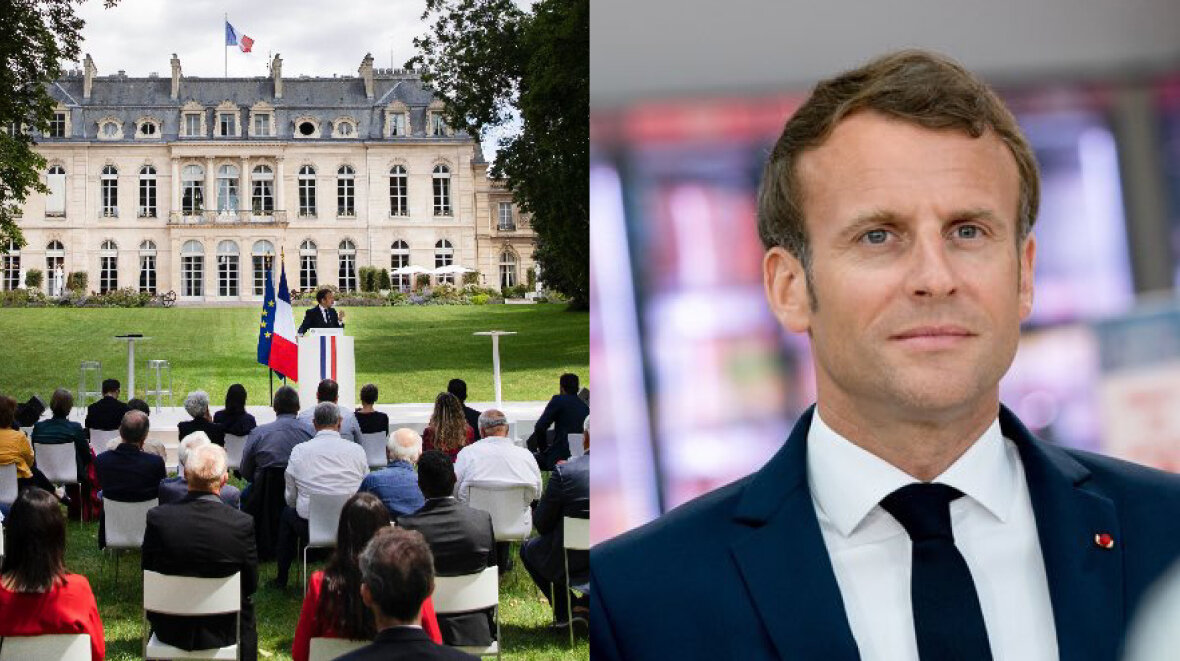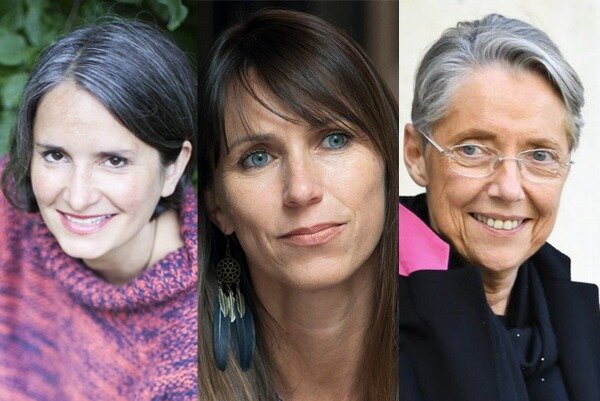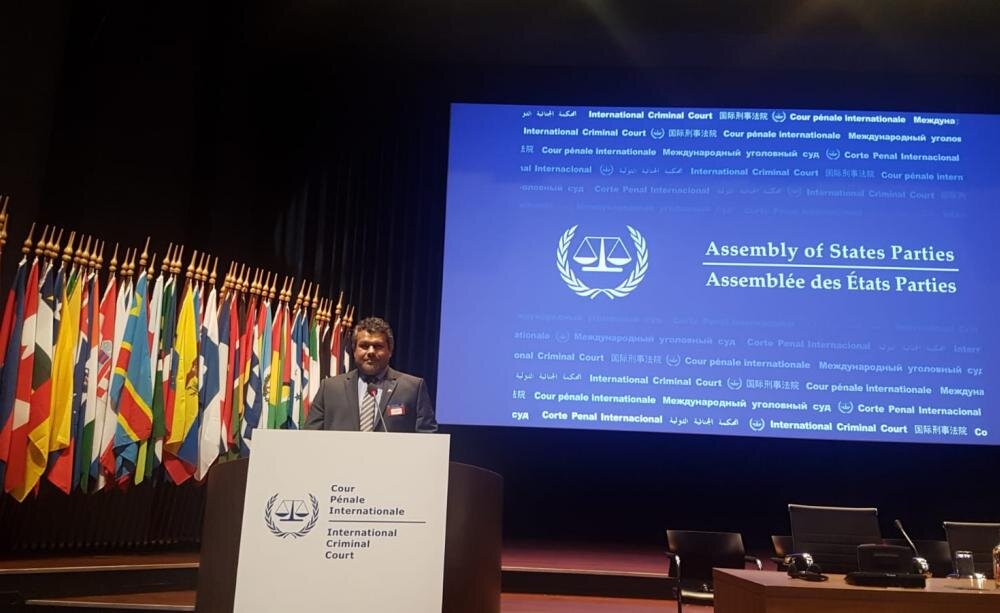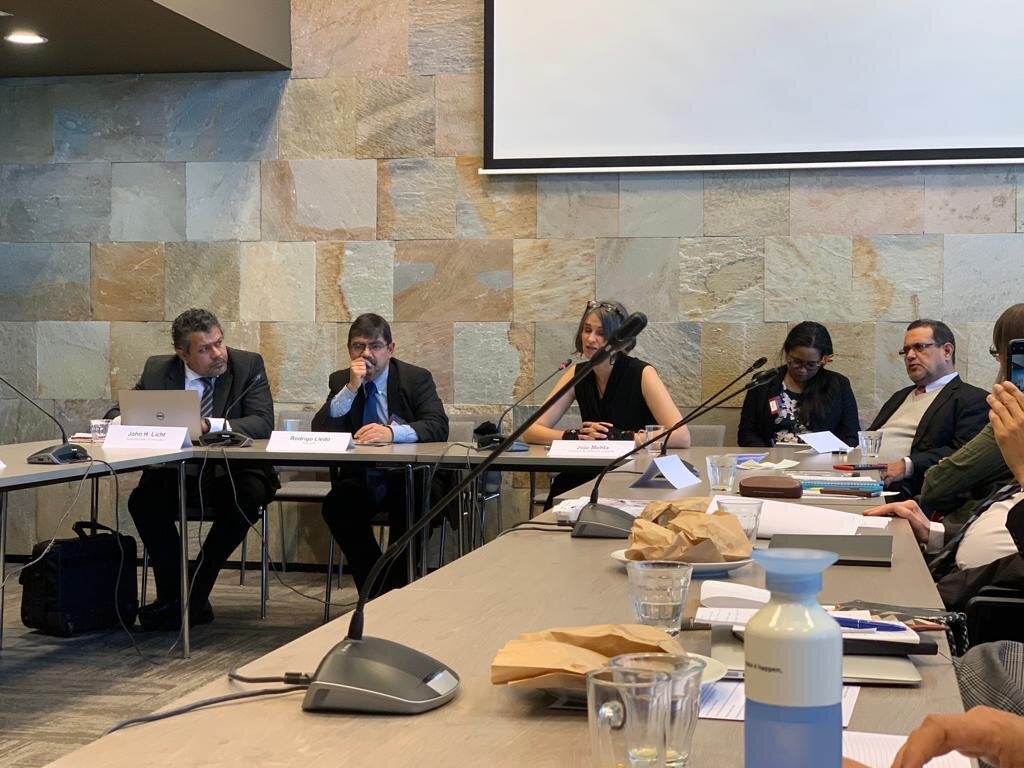Belgium, first European country to raise issue of ecocide at International criminal Court
Belgium, first European country to raise issue of ecocide at International criminal Court
Belgium is first European nation to raise criminalising ecocide at the International Criminal Court … the country’s official statement to the ICC’s Assembly of States Parties last week was made by Deputy Prime Minister & Foreign Minister Sophie Wilmès who stated:
“I would also like to take this opportunity to draw the attention of the State Parties to the tragedy of serious environmental crimes. Belgium believes that it would be useful to examine the possibility of introducing crimes known as ‘ecocide’ into the Rome Statute system in the context of’the work of our upcoming sessions.”
Great to see the Belgian government beginning to make good on the pledges in its 4-year programme.
Original extract in French:
“Je souhaite également profiter de cette intervention pour attirer l’attention des Etats parties sur le drame que constitue la perpétration de crimes graves à l’environnement. La Belgique estime qu’il serait utile d’examiner la possibilité d’introduire les crimes dits d’« écocide » dans le système du Statut de Rome, dans le cadre des travaux de nos prochaines sessions.”
Full official statement here by Deputy Prime Minister & Foreign Minister Sophie Wilmès
Dutch Party for the Animals proposal to Parliament outlining need for international legislation on Ecocide
Dutch Party for the Animals proposal to Parliament outlining need for international legislation on Ecocide
This week Dutch Party for the Animals, which holds 4 seats, submitted its initiative proposal to Dutch Parliament outlining the need for international legislation on Ecocide.
Dutch Parliamentarian Lammert van Raan said: “we call on Parliament to take 10 actions, ranging from submitting an amendment to add ecocide as a crime to the Statute of Rome to investigating the role of the Netherlands in waylaying such an effort in the past.
We are going to make it available in several languages so other countries can use it as well.”
The proposal will be discussed in the first half of 2021 in Dutch Parliament and can be downloaded here
french government betrays demands of citizens’ assembly
French government betrays demands of citizens’ assembly by misleading use of the term “ecocide”
French government betrays demands of citizens’ assembly with weak use of the term “ecocide”
In an unexpected move, the French government announced yesterday the creation of a new crime of “ecocide” which appears to be little more than a stronger enforcement of environmental obligations under existing law. The claim of government ministers is that this is an adequate response to proposals submitted by the Citizens’ Climate Assembly (Convention Citoyenne pour le Climat) earlier this year.
This use of the term doesn’t come close to what President Macron implied in his supporting statement in June when he promised to champion recognition of ecocide at the international level, and nor does it address the broader framework of planetary boundaries as strongly urged by the Convention.
Stop Ecocide Foundation’s advisory board member Valérie Cabanes, also a member of the recently convened Independent Expert Panel for the Legal Definition of Ecocide, was due to discuss today the developments on including ecocide in the French penal code, along with representatives from the government and the CCC. She was incensed at yesterday’s pre-emptive announcement.
“I am deeply disappointed with the French government's announcement concerning an ‘ecocide’ law. This crime against planetary safety, recognition of which was requested by the Citizens’ Climate Assembly in terms which echo the campaign led by the Stop Ecocide Foundation, has been relegated to the status of existing environmental crimes.
“Ecocide crimes should refer to acts on the scale of crimes against humanity or genocide, because the destruction of the Earth's ecological balance threatens the very survival of all populations, human and non-human. The French government has done well by finally complying with the 2008 European Union directive on the protection of the environment through criminal law. However under no circumstances is it recognising here a new crime against peace and human security that would allow it to embark on a responsible path to protecting the planet's major ecosystems.
“To use the term ‘ecocide’ while emptying it of substance is a nasty trick to play on citizens, giving them the illusion that they have got what they wanted.”
Jojo Mehta, Chair of the Stop Ecocide Foundation, is in agreement: “We have just convened a world-class legal drafting panel of international criminal lawyers and judges to address the definition of ‘ecocide’ as an international crime for potential addition to the Rome Statute. It is intended to address the worst excesses of environmental damage and destruction: acts which threaten the ecosystems on which humanity and life on Earth depend.
“While of course any enforcement of environmental laws is welcome, this proposed use of ‘ecocide’ by the French government is certainly not going to do that job, nor is it going to encourage offenders to take the term seriously. Indeed, it doesn’t reflect what President Macron himself described when he asserted before the Citizens Climate Assembly in the summer that we need ‘to ensure that this term is enshrined in international law so that leaders … are accountable before the International Criminal Court.’ Clamping down on a few pollution offences and imposing fines is hardly on this scale.
“That said, the French government is among the first to be seriously discussing the term, and we congratulate it on doing so. We trust there will be plenty of French interest in the report of the Independent Drafting Panel when it emerges with a robust legal definition of ‘ecocide’ in a few months’ time.”
top international lawyers to draft definition of “ecocide”
Top international lawyers to draft definition of "Ecocide"
Top international lawyers to draft definition of "Ecocide"
75 years after Crimes Against Humanity and Genocide coined at Nuremberg
International lawyer Philippe Sands QC and international judge Justice Florence Mumba* are to co-chair an expert drafting panel on the legal definition of “ecocide” as a potential international crime that could sit alongside War Crimes, Genocide and Crimes Against Humanity. Launching with preparatory work this month, and set to draft the definition over the early months of 2021, the panel has been convened by the Stop Ecocide Foundation on the request of interested parliamentarians from governing parties in Sweden.
The concept of criminalising mass damage and destruction of ecosystems or “ecocide” at a global level has been steadily gaining traction in recent months since small island states Vanuatu and the Maldives called for “serious consideration” of it at the International Criminal Court’s annual Assembly of States Parties in December last year. President Macron of France has actively promised to champion the idea and the newly formed Belgian government has pledged diplomatic action to support it. Now an impressive list of top international and environmental lawyers will be tackling how best to define it.
The timing is powerful. 20th November marks exactly 75 years since the opening of the Nuremberg trials of high-ranking Nazi officers in 1945, and Philippe Sands QC, co-chairing the Ecocide drafting panel, will be among the speakers at a ceremonial event to be held in Nuremberg’s historic Courtroom 600 where the trials took place. Sands’ award-winning book East West Street documents the origins of - and the lawyers behind - the terms Crimes Against Humanity and Genocide, first used in that very courtroom. The story intertwines with Sands’ own family history as those lawyers (Hersch Lauterpacht and Rafael Lemkin respectively) studied in the hometown of Sands’ Jewish grandfather. Now, Sands’ own choice of career and specialisation in international public and environmental law brings him full circle to the defining of a new international crime - Ecocide - in the context of a new global threat: the climate and biodiversity crisis.
““The time is right,” says Sands, “to harness the power of international criminal law to protect our global environment - seventy five years ago, ‘crimes against humanity’ and ‘genocide’ were spoken for the first time, in Nuremberg’s Courtroom 600, and my hope is that this group will be able to draw on experience since that day to forge a definition that is practical, effective and sustainable, and that might attract support to allow an amendment to the ICC Statute to be made. It is a privilege to work with such a fine and representative group, in the shadow and spirit of those who gave us ‘crimes against humanity’ and ‘genocide’, Hersch Lauterpacht and Rafael Lemkin.”
Sands is joined on the drafting panel by a heavyweight list of judges and lawyers. Co-chair Justice Florence Mumba is a judge at the ECCC (Khmer Rouge Tribunal) and former supreme court judge in Zambia. “I am honoured to participate. An international crime of ecocide may be important in that individual/State responsibility may be regulated to achieve balance for the survival of both humanity and nature,” Mumba suggests.
Jojo Mehta, Chair of the Stop Ecocide Foundation commissioning the panel’s work, explains the significance of the project: “There have been working definitions of ‘ecocide’ over the years and the general concept - of mass damage and destruction of ecosystems - is reasonably well understood. However when parliamentarians from a number of countries, from European states to Pacific islands, will be considering this definition in the light of possible proposal at the ICC, the text that emerges over the coming months must be both clear and legally robust. It is vital that the drafting panel has in-depth relevant legal expertise as well as a breadth of geographical perspective.”
She is thrilled with the line-up of the panel: “We couldn’t be happier with the calibre of expertise this project has attracted. It demonstrates a recognition in the legal world that Ecocide can, and now perhaps should, be considered alongside Genocide and Crimes Against Humanity as one of the ‘most serious crimes of concern to humanity as a whole’. It’s an honour to be working with these judges and lawyers, and an extraordinary moment to be launching the project as the first international trials are remembered at Nuremberg.”
Panellists and comment:
Also on the panel are former ICC Judge Tuiloma Neroni Slade from Samoa in the Pacific, where island states are already feeling the impacts of climate change in the form of rising sea levels and extreme weather events; and Pablo Fajardo, the award-winning Ecuadorean lawyer who took on Chevron over massive oil pollution in the Amazon rainforest. Fajardo explains: “I live in the Ecuadorean Amazon. From here I am a witness to the way in which crimes are committed against Nature, against life, on a daily basis. These crimes take their toll on humanity, they do not remain confined to Ecuador… and they go unpunished due to the great legal vacuum that exists globally.”
Professor Christina Voigt (University of Oslo), Chair of the Climate Change Specialist Group of the IUCN World Commission on Environmental Law and Member of the IUCN Task Force on Climate Change, sees a potential deterrent in the new crime: “We see both systemic, wide-spread and deliberate destruction of the environment without any obvious consequences. Establishing that - above a certain threshold of severity - such actions or omissions are crimes could not only bring those responsible to justice, but also more importantly prevent further destruction.”
International criminal lawyer Richard J Rogers, founding partner of Global Diligence LLP, executive director of Climate Counsel and Co-deputy chair of the panel, sketches out the challenge of developing a definition: “On the one hand, any new crime must attempt to address the worst violations committed against the natural environment or atmospheric systems. On the other hand, it must satisfy the basic norms of criminal law, including legal certainty and causation.”
Rodrigo Lledó is director of renowned criminal lawyer Baltasar Garzón’s international foundation FIBGAR. His interest is to “contribute to building a very consistent definition of Ecocide, applicable by any judge… whoever carries out an activity that creates a high risk of causing severe damage to nature must take adequate precautions, and if this is not the case, the person must be held responsible.”
Growing state support
There is growing state support for the move to make ecocide an international crime: last December the small island states of Vanuatu and the Maldives called for serious consideration of ecocide crime at the International Criminal Court’s assembly; earlier this year the Swedish workers movement urged Sweden to lead on proposing it; in June President Macron of France promised to champion it on the international stage. Pope Francis has also stated that he believes ecocide should be added to the list of international crimes; he received Stop Ecocide’s Advisory Board member Valérie Cabanes for an audience recently. Last month the newly formed Belgian government pledged to “take diplomatic action to halt ecocide crime”, and two motions on ecocide have recently been submitted to the Swedish parliament, one from the Left Party and one from the Greens/Social Democrats.
Full drafting panel details:
Co-chairs
Philippe Sands QC (UK/France), Matrix Chambers / UCL
Justice Florence Mumba (Zambia), international judge, Extraordinary Chambers in the Courts of Cambodia, former Supreme Court judge, Zambia
Co-deputies
Kate Mackintosh (UK/USA), executive director, Promise Institute, UCLA
Richard J Rogers (UK), founding partner, Global Diligence LLP, executive director, Climate Counsel
Panel members
Rodrigo Lledó (Chile), director, Baltasar Garzon's International Foundation FIBGAR (Spain)
Judge Tuiloma Neroni Slade (Samoa), former ICC judge
Syeda Rizwana Hasan (Bangladesh), director of Bangladesh Environmental Law Association
Prof Charles Jalloh (Sierra Leone), Florida International University / Int. Law Commission
Valérie Cabanes (France), international jurist and human rights expert
Pablo Fajardo (Ecuador), key lawyer in Chevron case, Goldman Prize and CNN Hero Award winner
Prof Christina Voigt (Norway), climate law expert, Univ. of Oslo
Alex Whiting (US), former ICC Prosecutions Co-ordinator, Professor of Practice, Harvard Law School
Convenor
Jojo Mehta, Chair, Stop Ecocide Foundation
*Dior Fall Sow replaces Florence Mumba who had to withdraw from the panel in December 2020 for personal reasons. Please read more here
Sweden to discuss ecocide law
Sweden to discuss ecocide law - Social Democrats, Greens and Left Party submit motions
Social Democrats, Greens and Left Party submit motions
Sweden has become the latest European state this year to discuss criminalising ecocide (mass destruction of nature). Two separate motions have been submitted to the Swedish parliament by a combination of three political parties.
The Left Party motion, submitted by MP Elin Segerlind and colleagues, stated: “It would send an important signal to make destruction of nature in itself a crime. Sweden should, within the UN and EU, act to update the legal framework so that it becomes a powerful tool to prohibit crimes against nature (ecocide) through including ecocide in the Rome Statute.”
The Greens/Social Democrats motion, submitted by MP Rebecka Le Moine and colleagues for the Greens and Magnus Manhammar for the Social Democrats, recalled that: “All countries which have signed the Rome Statute have the power to propose an amendment. Sweden should take the initiative together with other states which have expressed interest. Let us complete the circle that Olof Palme started and initiate the process towards an international ecocide law.”
Both motions refer to Sweden’s particular history on the subject: Olof Palme was the first Head of State to refer to mass destruction of nature as “ecocide” (at the 1972 UN Conference on the Environment in Stockholm) and to declare that it “requires urgent international attention.”
Nearly 50 years later, both parliamentary motions underline that those suffering the most from ecocide are often least responsible for creating it - “An international law on ecocide is especially urgent for poorer countries which are socio-economically vulnerable since that often implies weak environmental legislation. It is these countries whose populations are the ones contributing least to the problem, who are hit hardest by the dark sides of globalization like exploitation and pollution” (Greens/Social Democrats).
Last week as her motion was submitted, Ms Le Moine hosted a meeting in the Swedish parliament building bringing together delegates from Original (Indigenous) Nations and youth activists, MPs and representatives of Stop Ecocide International and End Ecocide Sweden to discuss the global ecological crisis, its colonialist origins and how ecocide law can help restore harmony with nature.
Jojo Mehta, co-founder of Stop Ecocide International and Chair of the Stop Ecocide Foundation said: “It was a huge privilege to be in dialogue with this remarkable gathering. Ecocide law has a particular resonance in the context of indigenous wisdom. It speaks to a universal law of reciprocity which is deeply understood by the Original Peoples of the world. If you damage Mother Earth, there are consequences. This is simply a fact - one we are now tragically witnessing on a global scale. It’s high time for our legal system to recognise and reflect this reality, and it’s fitting that Sweden should be picking up the baton of former premier Olof Palme to discuss this.”
VIDEO (2 mins): Mother Earth Delegation and Stop Ecocide at the Swedish Parliament (Jojo Mehta introduces meeting in Swedish Parliament with Elders, Youth & MPs)
Expert panel to draw up “ecocide” definition
An expert panel of international criminal lawyers, advised by top climate and environmental scientists, is currently being convened by the Stop Ecocide Foundation in response to requests from parliamentarians. The panel’s remit is to draft a legally robust definition which can be proposed at the International Criminal Court by interested states.
There is growing state support for the move to make ecocide an international crime: last December the small island states of Vanuatu and the Maldives called for serious consideration of ecocide crime at the International Criminal Court’s assembly; earlier this year the Swedish workers movement urged Sweden to lead on proposing it; in June President Macron of France promised to champion it on the international stage. Pope Francis has also stated that he believes ecocide should be added to the list of international crimes; he received Stop Ecocide’s Advisory Board member Valérie Cabanes for an audience recently. Last month the newly formed Belgian government pledged to “take diplomatic action to halt ecocide crime”.
Photo credits: Magnus Åkerlind
Video credits: Tommy Gärdh, Visionary Films Stockholm
“criminal law to the rescue”
Belgium pledges diplomatic action to halt ecocide crime
Belgium pledges diplomatic action to halt ecocide crime
After long deliberations (493 days) following elections last year, the coalition government in Brussels has at last reached its final form, and has set out its programme for the next 4 years. Significant among the government’s pledges is a strong move towards recognising a crime of ecocide both internationally and in domestic legislation.
Echoing the French President Emmanuel Macron’s declaration from June this year, the new government has pledged, concerning domestic law, that “experts will be called to advise on the inclusion of ecocide in the new penal code” [p50 para1]. At the international level, the government has made a strong commitment to “research and take diplomatic initiatives aimed at halting the crime of ecocide, which is to say the conscious destruction of ecosystems” [p79 para 5].
The pledges follow Green (Ecolo) MP Samuel Cogolati’s proposal in July that the government support the initiative of Vanuatu and the Maldives, which both called last year for serious consideration of amending the International Criminal Court’s Rome Statute to include ecocide. Cogolati (pictured) is pleased with the government’s commitment, underlining the urgency of the global situation: “We must protect nature and future generations in much stronger, more enforceable ways... Because without water, without forests, without clean air, we cannot survive on Earth. The planet is our common home. It’s time for criminal law to urgently come to the rescue.”
Jojo Mehta, co-founder of Stop Ecocide International and Chair of the Stop Ecocide Foundation said: “This is hugely encouraging and timely news. States are realising that an enforceable deterrent against mass destruction of ecosystems is required, and supporting ecocide as an international crime would also add real weight to the Leaders Pledge for Nature signed by over 70 Heads of State earlier this week.”
Expert panel to draw up “ecocide” definition
So what exactly does “ecocide” refer to? Mehta explains: “While our working definition is in essence mass damage and destruction of ecosystems, committed with knowledge of the risks, an expert panel of international criminal lawyers, advised by top climate and environmental scientists, is currently being convened by the Stop Ecocide Foundation. The panel’s remit is to draft a clear and legally robust definition which can be considered for proposal by states at the International Criminal Court. A full list of panel members will be made available in due course."
There is growing state support for the move to make ecocide an international crime: last December the small island states of Vanuatu and the Maldives called for serious consideration of ecocide crime at the International Criminal Court’s assembly; earlier this year the Swedish workers movement urged Sweden to lead on proposing it; in June President Macron of France promised to champion it on the international stage. Pope Francis has also stated that he believes ecocide should be added to the list of international crimes; he received Stop Ecocide’s Advisory Board member Valérie Cabanes for an audience recently.
an audience with pope francis
Stop Ecocide Advisory Board member Valérie Cabanes to speak with Pope Francis on the subject of ecocide
Stop Ecocide Advisory Board member Valérie Cabanes to speak with Pope Francis on the subject of ecocide
Valérie Cabanes, ecocide law advocate and member of Stop Ecocide’s Advisory Board, is due to have an audience with Pope Francis this Thursday 3rd September at the Vatican, invited as part of a special French eco-delegation including author Pablo Servigne, Jesuit scientist Gaël Giraud and actress Juliette Binoche. Ms Cabanes will deliver a request from Stop Ecocide urging the Pope to build on his 2019 call for recognition of ecocide as a “fifth category of crimes against peace”.
Pope Francis signalled a new direction for the Catholic church in 2015 with his encyclical Laudato Sí, a papal document released in nine languages which highlighted global warming and destruction of the environment as going hand-in-hand with irresponsible development, consumerism and a throwaway culture that fails to see the interconnectedness of all creation.
Last November, in a speech to the International Association of Penal Law, the Pope explicitly called for ecocide to be made a “fifth category of crimes against peace” at the International Criminal Court - precisely what the Stop Ecocide campaign advocates for.
Pope Francis’ focus on nature and his criticism of exploitative culture are aligned with the concerns of his 13th century namesake St Francis of Assisi. This criticism was echoed in his bulletin yesterday marking the church’s World Day of Prayer for the Care of Creation.
Pope Francis said: “Today we hear the voice of creation admonishing us to return to our rightful place in the natural created order – to remember that we are part of this interconnected web of life, not its masters. The disintegration of biodiversity, spiralling climate disasters, and unjust impact of the current pandemic on the poor and vulnerable: all these are a wakeup call in the face of our rampant greed and consumption.”
The request being made by Ms Cabanes this week will be for Pope Francis to reiterate his call for ecocide crime, both with global leaders and with the Catholic community around the world, numbering over 1.2 billion people.
Jojo Mehta, co-founder of the international Stop Ecocide campaign, said: “It’s a fantastic opportunity for us to be able to directly appeal to Pope Francis. Calling for ecocide law is a practical way for the Pope to bring his spiritual influence to bear on the existential crisis being faced by the entire Earth community.
“The Catholic church has in its history plenty of greed, domination, persecution and distortion - some of it very recent. We are nonetheless aware that Pope Francis brings a new energy to the Vatican and is loved and respected by millions, both among and beyond those of Catholic faith. He is a bridge-builder with other faith leaders including indigenous wisdom keepers, promoting a holistic and inclusive spiritual outlook; and is of course in an exceptional position of influence within the huge global Catholic community as well as among world leaders. In this light, he has enormous potential to support establishing ecocide as an international crime. Let us trust he will realise that potential - we feel blessed to be able to address this directly via his audience with Valérie.”
There is growing support for the move to make ecocide an international crime: last December the small island states of Vanuatu and the Maldives called for serious consideration of ecocide crime at the International Criminal Court’s assembly; earlier this year the Swedish workers movement urged Sweden to lead on proposing it; in June President Macron of France promised to champion it on the international stage and in July the Belgian Eco-Green parties introduced a bill into parliament which is due to be discussed this month.
greta thunberg foundation donates to the stop ecocide foundation
Greta Thunberg awarded first Gulbenkian Prize for Humanity and donates €100K to the Stop Ecocide Foundation
Greta Thunberg awarded first Gulbenkian Prize for Humanity and donates €100K to the Stop Ecocide Foundation
The Calouste Gulbenkian Foundation in Lisbon today awarded the first of an annual prize, worth €1 Million, “distinguishing people and/or organisations worldwide that have stood to the fore in tackling the climate crisis”. The Greta Thunberg Foundation will donate the award money to charitable causes, starting with €100,000 to the Stop Ecocide Foundation and to the SOS Amazonia campaign by Fridays for Future Brazil.
From 136 candidates, a shortlist of 10 was considered by an independent Grand Jury of international experts chaired by Jorge Sampaio, former President of Portugal. He said this year’s prize was very much a consensus choice and celebrated “the way Greta Thunberg has been able to mobilize younger generations for the cause of climate change and her tenacious struggle to alter a status quo that persists.”
Thunberg said that her foundation will “as quickly as possible donate all the prize money … to support organizations and projects that are fighting for a sustainable world, defending nature and supporting people already facing the worst impacts of the climate- and ecological crisis — particularly those living in the Global South.
“The first two donations of €100,000 will go to the SOS Amazonia campaign led by Fridays For Future Brazil to tackle Covid-19 in the Amazon, and to the Stop Ecocide Foundation to support their work to make ecocide an international crime."
Jojo Mehta, co-founder of the international Stop Ecocide campaign and Chair of the Stop Ecocide Foundation, responded:
“This is a generous and very timely gift. The funding will support Stop Ecocide’s legal work to establish an international crime of ecocide. Thank you for recognising the significance of this work, and its potential to steer our collective ship towards safety and a healthy recovery for people and planet.”
There is growing support for the move to make ecocide an international crime: last November Pope Francis called for ecocide as a “fifth category of crimes against peace”; in December the small island states of Vanuatu and the Maldives called for serious consideration of ecocide crime at the International Criminal Court’s assembly; earlier this year the Swedish workers movement urged Sweden to lead on proposing it; and last month President Macron of France promised to champion it on the international stage.
belgium green party introduces bill to make ecocide a crime
Belgian Green parties introduce bill to make ecocide a crime - and support ecocide amendment to the Rome Statute of the International Criminal Court
Belgian Green parties introduce bill to make ecocide a crime - and support ecocide amendment to the Rome Statute of the International Criminal Court
Following French President Emmanuel Macron’s statement last month in support of a crime of ecocide, the Belgian Ecolo-Groen parties have been quick to seize the moment to propose establishing the crime in Belgium and internationally.
In consultation with French legal expert, veteran campaigner (and Stop Ecocide associate) Valérie Cabanes, the Greens have this week introduced a bill into the federal parliament’s Chamber of Representatives, proposing:
To examine introducing a crime of ecocide into the Belgian penal code, in collaboration with the Regions;
To support the initiative of Vanuatu and the Maldives to amend the Rome Statute of the International Criminal Court to include the crime of ecocide;
To propose, on behalf of the Kingdom of Belgium, amendments to the Rome Statute of the International Criminal Court with the aim of including the crime of ecocide.
Samuel Cogolati, the Member of Parliament behind the proposal, is committed to preventing mass destruction of the Earth. He explained:
“Right now the law forbids theft and drug trafficking but is silent on the most serious crimes committed against the planet! Now we are all victims of climate breakdown, pollution and the collapse of biodiversity. We must protect nature and future generations in much stronger, more enforceable ways. We must recognise the intrinsic value of ecosystems in our penal code. Because without water, without forests, without clean air, we cannot survive on Earth. The planet is our common home. It’s time for criminal law to urgently come to the rescue.”
Cogolati’s proposal will be discussed and voted on after the summer break. As the Ecolo-Groens make up the second biggest party group in Belgium, it will certainly be taken seriously.
Cabanes, for her part, is glad to see so many years of dedicated campaigning in France and beyond beginning to pay off:
“The great thing emerging right now is the voice of states with a strong diplomatic influence (France, Belgium), so that real negotiations can begin and an amendment to the Rome Statute to recognise ecocide can be put on the agenda, no doubt in 2021. Moreover Belgium [is] one of the countries that already operates international jurisdiction [so] a national law can have international impact, and that is extremely interesting.”
Brussels is clearly the place to be this week for discussing ecocide crime. Just yesterday two young Belgian “Fridays For Future” activists, Anuna de Wever and Adélaïde Charlier, joined Greta Thunberg of Sweden and Luisa Neubauer of Germany to launch an open letter addressing the EU leaders meeting in Brussels today to discuss Covid-19 recovery. The letter, which has already attracted many thousands of signatures, urges leaders to treat the climate crisis as a crisis, with a key demand for them to support an international crime of ecocide.
Jojo Mehta, co-founder of the international Stop Ecocide campaign, said:
“This is an incredibly exciting week. Civil society and politicians alike are waking up to the need for a simple, enforceable way to protect our precious life support system - the natural living world. Making ecocide a crime is a straightforward way to prevent further devastation. We were already delighted at the huge wave of support for Greta’s letter yesterday and now eagerly await the outcome of Belgium’s discussions after the summer.”
There is growing support for the move to make ecocide an international crime: last November Pope Francis called for ecocide as a “fifth category of crimes against peace”; in December the small island states of Vanuatu and the Maldives called for serious consideration of ecocide crime at the International Criminal Court’s assembly; earlier this year the Swedish workers movement urged Sweden to lead on proposing it; and just last month President Macron of France promised to champion it on the international stage.
EU leaders are called on to face the limate emergency & support making ecocide an international crime
Greta, Luisa, Anuna, Adélaïde: citizens, scientists and influencers join youth activists calling on EU leaders to #FaceTheClimateEmergency and support making ecocide an international crime
Greta, Luisa, Anuna, Adélaïde: citizens, scientists and influencers join youth activists calling on EU leaders to #FaceTheClimateEmergency and support making ecocide an international crime
Greta Thunberg
Luisa Neubauer
Anuna de Wever
Adélaïde Charlier
An open letter from four well-known young climate activists - Greta Thunberg (Sweden), Luisa Neubauer (Germany), Anuna de Wever and Adélaïde Charlier (both from Belgium) - has called for EU member states to “advocate to make ecocide an international crime at the International Criminal Court”. Thousands of citizens, scientists and influencers have already put their names to the letter with more joining all the time. (See EU open letter press release HERE)
Their list of demands marks a move for Thunberg and fellow youth activists towards proposing key solutions to the climate and ecological crisis - which they say is still not being treated as the emergency it is. “We want leaders to address the root causes,” says Thunberg.
Making ecocide an international crime features alongside divesting from and halting subsidies for fossil fuels. The open letter accompanying the demands states: “We need to end the ongoing wrecking, exploitation and destruction of our life supporting systems and move towards a fully decarbonised economy that centres around the wellbeing of all people as well as the natural world.”
Jojo Mehta is co-founder of the global campaign Stop Ecocide which works with international criminal lawyers, researchers, NGOs and small nation states towards making ecocide a crime at the International Criminal Court. She wholeheartedly agrees:
“Mass damage and destruction of ecosystems - ecocide - has led directly to the climate and ecological emergency we now face. As Greta has pointed out before, we already have the solutions. But until we close the door to the destruction, until we draw that line in the sand, finance and politics will continue to support the old ways. We cannot afford - our children, our planet cannot afford - for that to happen any more. It’s time to change the rules.”
Mehta sees establishing this crime as a simple, effective way to safeguard the life support systems for humanity and the planet.
“Criminal law is how we draw the moral line between what is acceptable and what is not. It’s also protective law - your life is protected because murder (homicide) is a crime. It’s becoming increasingly clear that there is a missing law to protect ecosystems in a similar way. This gap in legal protection has led us to a very dangerous place. Making ecocide an international crime is the simple course correction that can steer us towards safety and a truly healthy recovery, for people and for the living ecosystems on which we wholly depend.”
There is growing support for the move to make ecocide an international crime: last November Pope Francis called for ecocide as a “fifth category of crimes against peace”; in December the small island states of Vanuatu and the Maldives called for serious consideration of ecocide crime at the International Criminal Court’s assembly; earlier this year the Swedish workers movement urged Sweden to lead on proposing it; and just last month President Macron of France promised to champion it on the international stage.
President Macron “shares ambition” to establish international crime of ecocide
President Macron “shares ambition” to establish international crime of ecocide
French head of state’s response to citizens assembly opens way to legal protection of the Earth
President Emmanuel Macron of France met the 150 randomly selected members of the citizens assembly on climate, the Convention Citoyenne pour le Climat (CCC) this morning in the gardens of the Elysée Palace in Paris to give his response to the assembly’s proposals to tackle climate change.
Foremost among these was the proposal, supported by 99.3% of the assembly, that a new crime of ECOCIDE be established in France. Macron stopped short of accepting the exact text proposed, but clearly endorsed the principle. He assured the citizens of his support:
“We'll study, with you and legal experts, how this principle can be incorporated into French law."
Moreover he specifically promised to champion, on behalf of France, the enshrining of ecocide crime in international law.
“As for ecocide, I think I was the first leader to use that term when the Amazon was burning," the head of state said. "So I share the ambition that you defend … the mother of all battles is international: to ensure that this term is enshrined in international law so that leaders … are accountable before the International Criminal Court.”
Jojo Mehta, co-founder of the Stop Ecocide campaign which advocates for exactly this, said:
“This is hugely significant. Macron is the first leader of a wealthy industrial nation – one of the G7 – to support an international crime of ecocide. Let’s hold him to it, and look to other countries to follow his example. This conversation is not going to go away.”
She continued: “Making ECOCIDE a crime will change the ground rules, closing the door to the destructive practices that have brought us to climate and ecological emergency… and paving the way for healthier, safer ways of operating. It’s the bridge to a world where nature and humanity are both protected and can begin to recover – together.”
Valérie Cabanes, established voice for ecocide law in France, legal expert and close associate of the Stop Ecocide campaign, is resolute:
“We take Emmanuel Macron at his word concerning his wish to fight for the recognition of the crime of ecocide at the International Criminal Court on behalf of France. He says he shares our ‘emotion faced with those who destroy entire ecosystems with "full knowledge of the facts and with impunity".’ Mr President, we expect you to stick to your words! In the meantime: Thank you!”
French citizens’ assembly votes to make ecocide a crime
French citizens’ assembly votes to make ecocide a crime
Over 99% in favour of ecocide crime, 63% for a national referendum on it.
Pictured above: Jojo Mehta, co-founder Stop Ecocide, Valérie Cabanes, international law expert (human rights), Élisabeth Borne, French Minister for Ecological Transition
Following the “gilets jaunes” crisis last year, President Macron convened a “citizen’s climate assembly” – the Convention Citoyenne pour le Climat (CCC) of 150 randomly selected French citizens – and gave them a mandate to discuss and propose policies for addressing the climate crisis.
The CCC has just voted on its final proposals. Foremost among these is a crime of ecocide, intended to remove the impunity of big polluters acting in full knowledge of the risks to ecosystems. The crime is defined using the concept of “planetary boundaries”, developed by the Stockholm Resilience Institute and influential in the drafting of the UN’s Sustainable Development Goals. The framework lists nine connected “planetary boundaries” (eg CO2 levels, ocean acidification, biosphere integrity) beyond which we cannot go without risking irreversible damage to the Earth’s ability to sustain human life.
Valérie Cabanes, lawyer, activist and established voice for ecocide law in France and beyond, presented to the CCC in January the law proposal for which she had previously been lobbying. Inspired by the work of late British lawyer Polly Higgins, Cabanes has dedicated many years to legally enshrining the protection of nature. She is thrilled:
“The approval of the Citizen's Climate Convention reflects and speaks for a French population ready to adopt a law that respects the Earth’s ecosystems. The CCC also proposed that this law be decided via referendum, to avoid censure by parliament - letting the French population choose their own destiny: living in harmony with nature and protecting future generations - or not. It’s a symbolic and powerful step. Now we wait for our leaders to listen - and act in accordance with the proposals.”
Jojo Mehta, co-founder with Higgins’ of the Stop Ecocide campaign, works closely with Cabanes and others around the world to progress a crime of ecocide at the International Criminal Court. She said today:
“The news from France is phenomenal. It clearly demonstrates that citizens feel the urgent need for an enforceable deterrent to prevent ecosystem destruction. We trust the French government will respond positively and step up at the national level – even take the opportunity to lead at the international level, where Macron has already stated he believes this crime belongs (*20h04 in the timeline). The ball is already rolling… climate-vulnerable states we have been working with have called for ecocide crime to be considered at the International Criminal Court in the Hague. This vote is a huge pointer for France to move in the right direction, and will undoubtedly inspire other countries.”
Elisabeth Borne, the French Minister for Ecological Transition, has said she is in favour of the proposal and will meet with the citizens’ assembly tomorrow Monday 22nd. President Macron is due to meet with them a week later on the 29th.
Pictured above:
Valérie Cabanes, international law expert (human rights)
Élisabeth Borne, French Minister for Ecological Transition
Jojo Mehta, co-founder Stop Ecocide
Maldives calls for a fifth international crime of ecocide
Maldives calls for a fifth international crime of ecocide
"Please find below a press release from the Maldives government, which we are sharing on their behalf."
The Republic of Maldives, in its official statement to the Assembly of States Parties in The Hague has asserted its support for a fifth international crime of ecocide. The statement issued by the island nation, which has been a State Party to the Rome Statute of the International Criminal Court (ICC) since 2011, read; “We believe the time is ripe to consider an amendment to the Rome Statute that would criminalise acts that amount to ecocide.”
The statement was issued by Mr. Ahmed Saleem, Member of Parliament and Chair of the Parliamentary Standing Committee on Climate Change and Environment. In it he emphasized the life-or-death situation faced by his people and was critical of the lack of international action on climate change. “A decade has passed since we reminded the Security Council that a mean sea-level rise of two metres would suffice to virtually submerge the entire Maldives under water. Yet, we see no serious efforts on the part of large emitting countries to save humanity from the impending climate change catastrophe. We see little or no concrete action at multilateral level to bring about transformative changes necessary to prevent the repercussions of climate change. We are gravely concerned that this inaction will ultimately lead to the death of nations such as ours.”
The Maldives, a low laying island nation of about 1200 islands in the middle of Indian Ocean, has long been a strong advocate on climate change issues. Its serious concern over the impact of climate change was brought to global attention a decade ago, in 2009, when the country’s then President, Mohamed Nasheed, together with his cabinet ministers, held the world’s first underwater cabinet meeting. This was, a symbolic cry for help over rising sea levels that causes an existential threat to the tropical archipelagic nation.
Maldives has been reiterating the urgent need to act swiftly on the issue of climate change at many international forums. Its government remains steadfast in addressing climate change issues and bringing the matter to the international frontline. At the Blue Leaders Call to Action on Ocean and Climate, held in New York this September, President Ibrahim Mohamed Solih strongly urged world leaders to support the conclusion of a robust new international agreement in 2020, for the conservation and management of high seas to prevent adverse environmental effects.
Highlighting the impact of climate change and its long term effect and threat to humanity, the country’s Foreign Minister, Abdulla Shahid, in a statement given to Climate Diplomacy, reminded the world that, small island states may be the first to feel the impacts of climate change, but should we fail to unite in this fight, its impacts will reach bigger, more developed countries.
Noting his disappointment with the speed in which international communities are dealing with climate action, Hon. Ahmed Saleem remarked during this week’s Assembly: “My country, along with other environmentally vulnerable states has waited a long time, hoping that concrete steps will be taken at an international level to address this imminent climate emergency which our people face.” He further noted that “it is time justice for climate change victims be recognised as part and parcel of the international criminal justice system.”
The Maldives’ full statement is visible on the ICC website
IMAGE Mr. Ahmed Saleem, Member of Parliament and Chair of the Parliamentary Standing Committee on Climate Change and Environment.
Vanuatu calls for internatioal criminal court to seriously consider recognising crime of ecocide
Vanuatu calls for International Criminal Court to seriously consider recognizing crime of ecocide
On 3rd December 2019 in The Hague, at the International Criminal Court (ICC)’s annual Assembly of States Parties, the Pacific island state of Vanuatu made a bold statement - that the Assembly should consider seriously expanding the court's remit to include a crime of ecocide.
Ambassador John Licht of Vanuatu, speaking on behalf of his government to the full plenary session of the Assembly, declared: "An amendment of the Rome Statute could criminalise acts that amount to ecocide. We believe this radical idea merits serious discussion."
This came in the context of Vanuatu’s declared commitment to universal justice for the most serious crimes, and also the observation that sea level rise and other impacts of climate change continue to compromise Vanuatu’s ability to achieve sustainable development under the 2030 SDG Agenda.
Exploring justice for mass destruction to the natural environment and effects of global warming, Vanuatu’s official statement suggested that the Assembly of States Parties is supremely well positioned to consider averting climate catastrophe and securing reparation for victims through the international courts system.
The statement continued: “Science indicates that global warming is real and will only get worse and catastrophic if we do not achieve the rapid and far-reaching transformations necessary to keep temperature below 1.5 degrees. Therefore resolving to strengthen the international rule of law to protect our common heritage and environment could be our joint legacy.”
This is the first time since 1972 that a state representative has formally called for ecocide to be recognised at an international forum of such representatives. The last person to do so was Swedish premier Olof Palme in 1972 at the UN Stockholm Conference on the Human Environment where he described the air and oceans as a shared environment towards which we all must have a duty of care, declaring that "ecocide... requires urgent international attention"
Ambassador Licht remarked after giving his speech: "We need to construct a strong bridge between science and legal pathways to explore how best the State Parties through their relevant international institutions could commence discussions on finding a legal recourse to the ongoing destruction of the natural environment and the Earth’s climate system – what we refer to as Ecocide.
“Vanuatu is not alone in the climate crisis”, he continued. “Societies around the world are facing similar challenges that continue to take lives and destroy economic wealth of affected regions at an unprecedented scale. Vanuatu believes that the ICC’s Assembly needs to remain relevant in the face of the greatest threats to human rights in the history of mankind – it needs to seriously consider amendments to have ecocide as the fifth crime under the Rome Statute.”
The official statement to full Assembly came shortly after a side event hosted by the Republic of Vanuatu on "Investigating & Prosecuting Ecocide: the current and future role of the ICC". The event was chaired by Ambassador Licht and featured Pacific speakers from Tuvalu and new ICC member state Kiribati, whose accession to the ICC’s Rome Statute took place just last month following a key roundtable meeting in Vanuatu’s capital Port Vila earlier this year. Also speaking were lawyers from France and Chile, international criminal barrister Richard Rogers and Stop Ecocide's co-founder Jojo Mehta.
Jojo Mehta said: "The panel event was full and the atmosphere charged. This is an idea whose time has not only come, it's long overdue. It's committed and courageous of Vanuatu to take the step of openly calling for consideration of a crime of ecocide, and it was clear from the response today that they will not be alone. The political climate is changing, in recognition of the changing climate. This initiative is only going to grow - all we are doing is helping to accelerate a much-needed legal inevitability."
Read official statement here
Images:
1. On the podium: Ambassador John Licht making Vanuatu's official statement.
2. Side event on ecocide left to right: Ambassador John Licht of Vanuatu; Rodrigo Lledó, Chilean lawyer; Jojo Mehta, director of Ecological Defence Integrity and co-founder of Stop Ecocide campaign; Losaline Teo, Crown Counsel of Tuvalu; Natan Brechtefeld Teewe, Former Minister of Justice, Kiribati
EDITORS NOTES:
Vanuatu is a Pacific island state made up of around 80 islands and has been designated the world's most climate vulnerable state. The small Republic with a population of 270,000 is a leading voice in the region and already last year publicly stated its willingness to take legal routes to pursue climate justice and compensation for climate damage.
Ecological Defence Integrity is a UK non-profit founded in 2017 by environmental campaigner Jojo Mehta and legal pioneer the late Polly Higgins (1968-2019), to support the establishment of ecocide as a crime at the International Criminal Court. To crowdfund for this they launched the public-facing campaign Stop Ecocide, where supporters declare themselves Earth Protectors and contribute to a globally validated Trust Fund.
Pope francis: destroying the earth is a sin and should be a crime.
Pope Francis: Destroying the Earth is a sin and should be a crime.
Addressing the International Association of Penal Law in the Vatican on 15th November 2019, Pope Francis proposed that “sins against ecology” be added to the teachings of the Catholic Church and went a step further, saying “ecocide” should be a fifth category of crimes against peace at the international level.
The Pope described acts that “can be considered as ‘ecocide’: the massive contamination of air, land and water resources, the large-scale destruction of flora and fauna, and any action capable of producing an ecological disaster or destroying an ecosystem.” Adding: “By ‘ecocide’ we should understand the loss, damage and destruction of ecosystems of a given territory, so that its enjoyment by the inhabitants has been or may be severely affected. This is a fifth category of crimes against peace, which should be recognised as such by the international community.”
This is exactly what Stop Ecocide is campaigning for. Jojo Mehta, co-founder of Stop Ecocide, said: ‘We’re thrilled to hear Pope Francis calling for serious harm to the Earth (ecocide) to be made a crime. His comments show he is aware of our work. With his global influence behind this, we hope to see many other Heads of State step forward in support.”
In order to add ecocide to the governing document of the International Criminal Court, known as the Rome Statute, any member Head of State may propose an amendment. With a 2/3 majority the amendment can be adopted and enforced by those who sign up to it (to enforce for all 122 member States a 7/8 majority is required).
Many of the countries with the largest Catholic populations are signed up to the Rome Statute, including: Brazil (126M), Mexico (98M), Italy (50M), France (44M), Columbia (36M), Poland (33M), Spain (32M) and Democratic Republic of Congo (28M) (size of Catholic population, ref: WorldAtlas). For these member States - and others who aren’t, with sizable Catholic populations like the United States (71M) and the Philippines (85M) - it is important that the Pope said: "We are thinking of introducing into the Catechism of the Catholic Church the sin against ecology, ecological sin, against the common home, because it is a duty."
Notes to editors:
Catechism of the Catholic Church is a summary of the teachings of the Catholic Church used for religious instruction.
The definition of Ecocide used by Pope Francis is the definition Polly Higgins, co-founder of Stop Ecocide, submitted to the UN Law Commission in 2010: “loss or damage to, or destruction of ecosystem(s) of a given territory(ies), such that peaceful enjoyment by the inhabitants has been or will be severely diminished.”
Contact: PRESS & PR
press@stopecocide.earth
Facebook | Twitter | Instagram | Website
About Stop Ecocide
Stop Ecocide campaigns to protect the Earth by making serious harm to nature a crime. It is an international public-facing campaign, managed by a UK non-profit incorporated in 2017, for the purpose of forwarding an international law of ecocide.
Further legal and historical information can be found at www.ecocidelaw.com
Recent coverage:
BBC World Service (between 8.50-13.08 mins)

